|
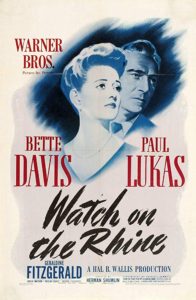
Synopsis:
During World War II, a German-born engineer and resistance fighter (Paul Lukas) travels to America with his wife (Bette Davis) and three kids (Donald Buka, Janis Wilson, and Eric Roberts) to live in the home of his widowed mother-in-law (Lucile Watson) and brother-in-law (Donald Woods), where a house-guest (Geraldine Fitzgerald) and her shifty, suspicious husband (George Coulouris) are also staying.
|
|
Genres, Themes, Actors, and Directors:
- Bette Davis Films
- Beulah Bondi Films
- Geraldine Fitzgerald Films
- Nazis
- Paul Lukas Films
- Play Adaptation
- Resistance Fighters
- World War Two
Response to Peary’s Review:
Peary writes that Dashiell Hammett’s adaptation of “Lillian Hellman’s 1941 anti-fascist play… probably wasn’t as stagy in the theater”. He points out that “characters gather in a room and, instead of engaging in believable discussion, take turns giving high-minded speeches that express their views of the global situation — and explain how they fit in”; he notes that “even the children — the type you’d consider returning to the orphanage [!] — seem to be indoctrinated rather than speaking from the heart.” He adds that “even with all the problems, however, the picture remains unique in that its major character, a sympathetic character, is a professional resistance fighter… and he is allowed to shoot and kill an unarmed fascist without being arrested or killed himself.”
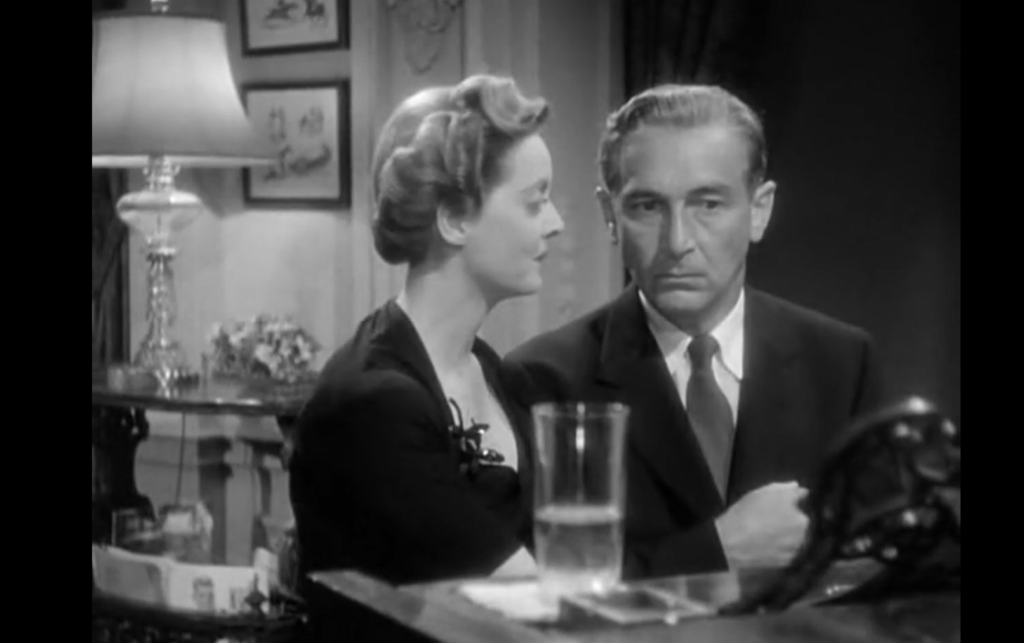
In Alternate Oscars, Peary gives the Best Actor award to Humphrey Bogart as Rick in Casablanca rather than Lukas in this film, noting that the “Hungarian Lukas was much better playing foreign villains in The Lady Vanishes and Confessions of a Nazi Spy than he was as leading men”: Peary asserts that Lukas’s performance here “is as shaky as the alcoholic Rick’s hand — at times he sounds like Bela Lugosi.” (Ouch!) Unfortunately, I’m in agreement with most of Peary’s points: this is indeed a stagy, speech-filled film, one which was likely excellent propaganda but hasn’t held up well as a drama (and is terribly acted by the kids).
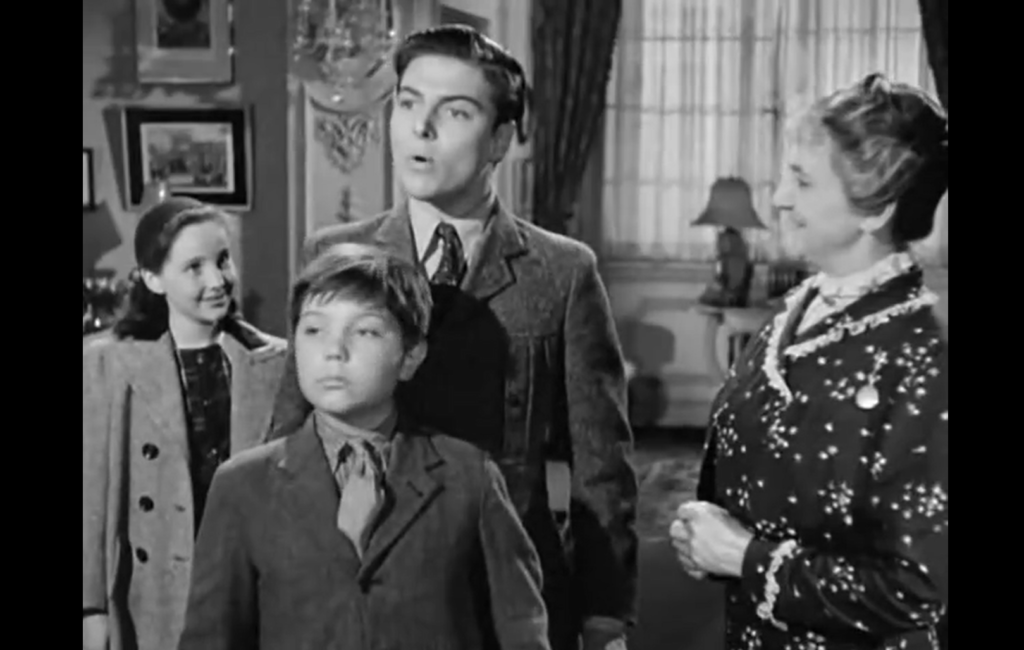
With that said, I don’t find Lukas’s characterization “shaky”, and disagree with Peary’s assertion that Davis gives a “bad performance” — rather, her role is minor, and thus unusual for someone of her stature.
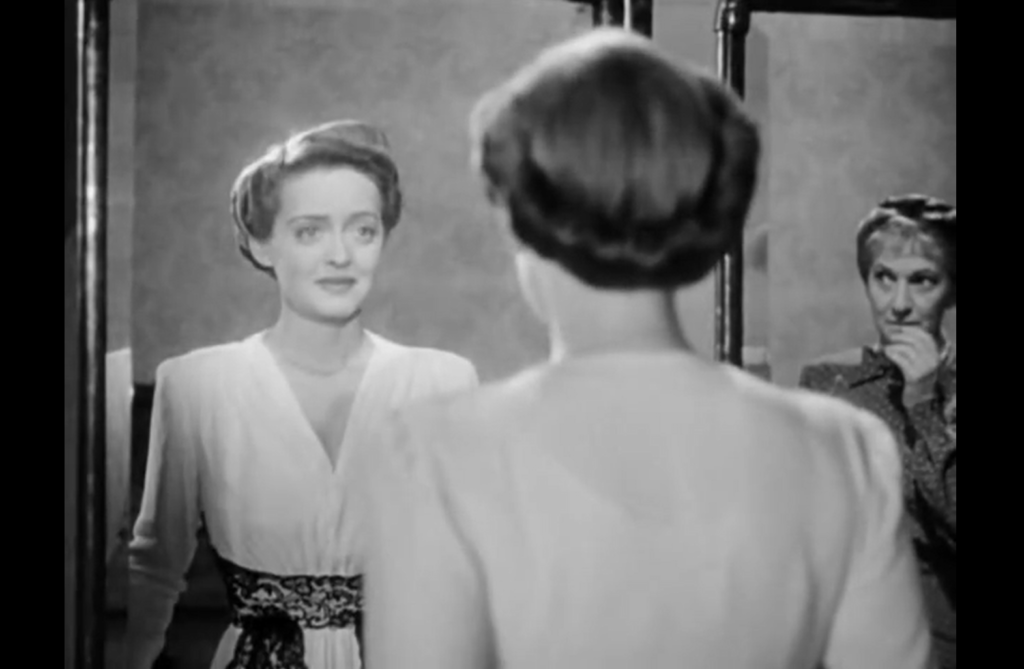
Redeeming Qualities and Moments:
- Paul Lukas as Kurt Muller
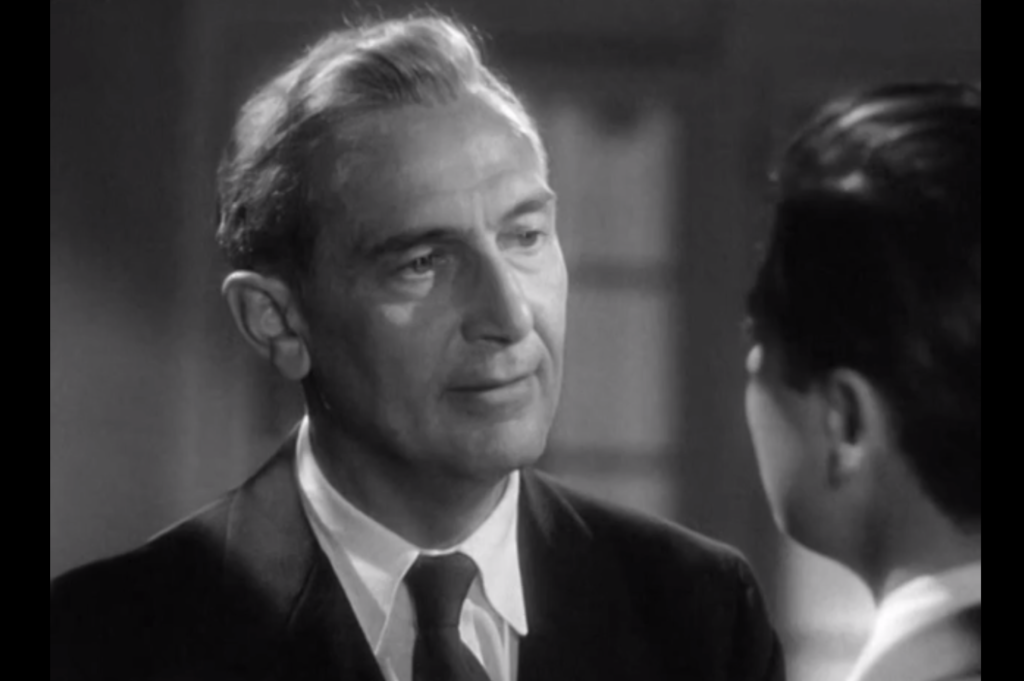
Must See?
No, though it’s worth a one-time look for its historical relevance.
Links:
|





One thought on “Watch on the Rhine (1943)”
First viewing (7/2018). Not must-see but worth seeing for its take on fascism.
As per my post in ‘The ’40s-’50s in Film’ (fb):
“I fight against fascism. That is my trade.”
‘Watch on the Rhine’ (1943) [streaming on FilmStruck]: Fascism then, fascism now. These things so unfortunately come in waves. In this film version of the Lillian Hellman play (adapted by Dashiell Hammett), an anti-fascist activist (Paul Lukas, who won an Oscar) and his wife (Bette Davis) and children – always on the run in Europe – take a breather by visiting (for the first time in 17 years) the wife’s American home and family. The wife’s mother has house guests: a conspirator and his wife… and the husband is an opportunist for the Nazis… and he sees before him a huge opportunity in being able to hand over Lukas. I hadn’t seen this Davis film until now. Strange and sad, how it speaks to us still. Warner Bros. found the film a financial risk… but Davis told Dick Cavett in 1971 that she took the role to lend support to a story she believed in. Though Hammett opened up the play some to make room for cinema, it’s still a very talky script but its message is strong and clear: the non-stop battle against evil. Director Herman Shumlin gets particular credit in the way he handles the family of activists; you really *feel* that this is a small group of people who nobly bear the burden of their struggle. Side note: when I was 12, I was in a stage production of this play on a college campus (playing the older son). As I recall, it was a pretty good production… and, at that young age, it gave me an odd awakening into the reality of the madness that erupts when evil gains the upper hand. (The last scene in the film is not in the play; the play ends with the film’s penultimate scene.)